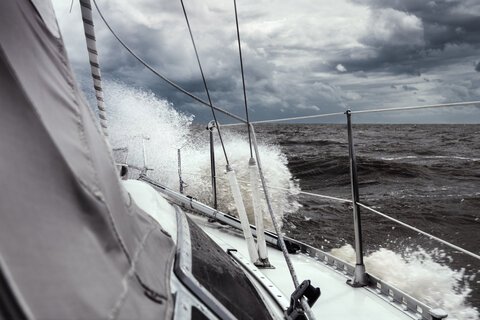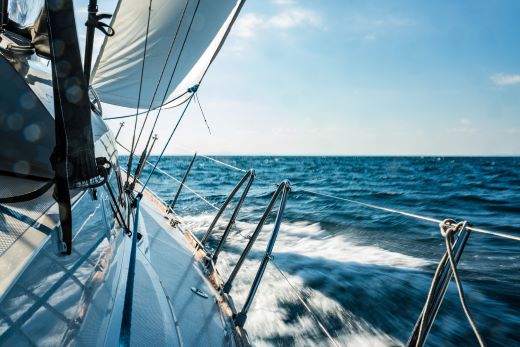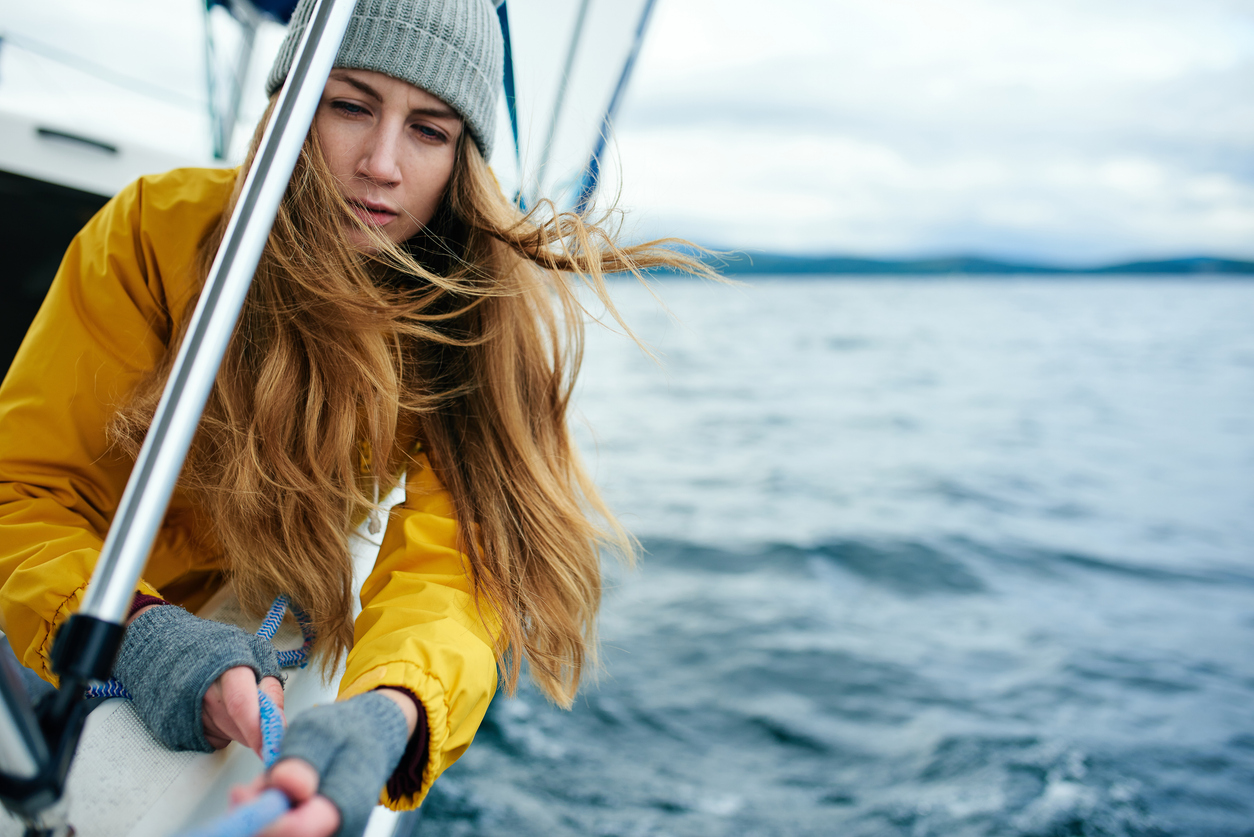Having the right boat can make all the difference when boating in rough conditions. Waves, swells, and unpredictable conditions require vessels built to handle the challenge. Whether you're an offshore angler, a cruising enthusiast, or a weekend watersport champion, choosing the right boat can mean safer journeys and a more enjoyable experience.
What to Look for if You Boat in Rough Waters
When choosing the best boats for rough waters, paying attention to specific features is essential.
Hull design is critical, as deeper angles and specialized shapes cut through waves and minimize impact. Weight and balance also play a role in reducing rolling and maintaining stability. Materials matter, too; a sturdy build means your vessel can withstand the demands of rough conditions.
What Boat Handles Rough Water The Best?
The Deep-V hull boat is widely considered the best boat for handling rough water. Its sharply angled hull design allows it to cut through waves effectively, reducing impact and providing a smoother ride in choppy or rough conditions. This design minimizes slamming against waves, offering stability and control even in challenging seas.
While the Deep-V hull is highly effective, other boat types like catamarans (for stability), pilot boats (for ruggedness), and trawlers (for comfort during long trips) also excel in rough waters, depending on specific needs and activities.
The best choice ultimately depends on the type of boating you plan to do and your priorities.
1. Deep-V Hull Boats
Boats with deep-V hulls are an industry favorite for rough waters. The sharply angled design allows these boats to slice through waves, reducing pounding and providing a smoother ride.
Commonly found on center consoles and sportfishing boats, deep-V hulls are ideal for both inshore and offshore outings. In fact, they are a popular choice for those who need the versatility to handle choppy waters.
Learn More About Boat Hull Types
2. Catamarans
Catamarans, with their twin-hull design, are renowned for stability. This design distributes weight evenly and minimizes rolling, even in the choppiest waters. Catamarans are excellent for families or groups seeking comfort and balance while navigating rough conditions.
These boats are also fuel-efficient and offer spacious decks, making them a favorite for longer trips or entertaining.
3. Wave Piercing Catamarans
A subset of catamarans, wave-piercing models feature a specialized hull design that reduces drag and allows the boat to cut through waves rather than ride over them. This design offers a smoother experience in extremely rough conditions and is becoming increasingly popular in both commercial and recreational markets.
4. Pilothouse Boats
Pilothouse boats are designed for professional use in extreme conditions, but their features inspire many consumer models. Reinforced hulls, robust construction, and enclosed cabins make them a safe choice for unpredictable waters.
While they may lack some recreational amenities, their rugged design is unmatched for those prioritizing safety and durability.
5. Trawlers
For long-distance cruisers, trawlers are a top pick. Their displacement hulls make them stable and fuel-efficient, providing a comfortable ride even in rougher conditions.
Trawlers are perfect for extended voyages, offering ample living space and the ability to handle moderate rough waters with ease. These boats are particularly popular with those who enjoy slow-paced exploration and relaxation.
6. Keel-Equipped Sailboats
Sailboats with deep keels are a reliable choice for rough seas. The keel provides counterbalance, offering stability and enabling the boat to cut cleanly through waves.
These boats are popular for coastal cruising and ocean crossings, offering an eco-friendly option powered by the wind. Experienced sailors value their efficiency and ability to handle challenging conditions.
7. Offshore Powerboats
These high-performance boats are built for speed and stability in rough open-water conditions. They often feature deep-V hulls and robust construction designed to handle large waves at high speeds. They're a popular choice among thrill-seekers and professional racers.
Learn More About High-Performance Boats
8. Rigid Inflatable Boats (RIBs)
Rigid Inflatable Boats, or RIBs, are compact yet highly capable. Lightweight and buoyant, they handle rough waters with surprising ease. Their shock-absorbing materials and high maneuverability make them excellent for quick trips, rescue operations, or as tenders.
Despite their size, RIBs perform exceptionally well in challenging conditions, earning them a spot on our list.
Learn More About Inflatable Boats
Is A Heavier Boat Better In Rough Water?
The additional weight helps the vessel resist being tossed around by the movement of water, which can significantly reduce pitching (the up-and-down motion) and rolling (the side-to-side motion). This makes for a smoother and more controlled experience, even in challenging conditions.
Heavier boats tend to sit deeper in the water, which can improve their handling in rough seas. The lower center of gravity enhances balance, providing a steadier ride when waves are high. Additionally, the sheer mass of a heavier boat absorbs the energy of oncoming waves, allowing it to cut through them rather than being lifted and tossed.
Tips for Boating in Rough Conditions
Selecting the right boat is only part of the equation; being fully prepared is key when facing rough waters. Always check weather forecasts before setting out and equip your boat with essential safety gear, including life jackets, flares, and a reliable communication system.
Practicing your boat's handling in milder conditions can also build confidence and skill for when the waters get rough.
Choosing the Right Boat for Your Needs
When deciding on the best boat for rough waters, consider your specific activities and preferences. Sportfishing enthusiasts who need an offshore-ready vessel, sailors looking for a comfortable weekend on the water, and everyone in between can find their perfect match.
By choosing a boat built to handle challenging conditions, you'll unlock opportunities to explore farther and enjoy your time on the water with greater confidence. The right vessel can turn even rough waters into an exciting adventure.


